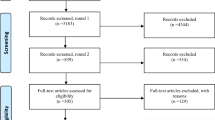Abstract
Advances in science education research and development examining cognitive reasoning, epistemic practices, and formative and summative assessment tools and methods are fundamentally repositioning the conceptualization and design of curriculum, instruction, and assessment. However, with the rapid emergence of technologies and tools for supporting data analytics and data dashboards to inform and support classroom, school, and district level decision making, the accelerating pace of such changes is challenging teachers, school leaders, and education systems. New frameworks and methodologies while informing and guiding the study of educational systems (globally, nationally, regionally, and locally) are also challenging precepts and conceptions of recently rendered standards documents, curricular design models, and pedagogical practices. Yet another driver of change is the increasing orientations of schooling to address career and workforce initiatives. Recently released international policy documents are speculating on how models of education need to change in order to prepare students and citizens for life with uncertain global conditions and for workforce dynamics that are rapidly changing. A panel of international science education leaders were drawn together to examine and discuss recommendations from four 21st Century Education Policy reports. Two examining curriculum frameworks, one examining international assessments, and one examining instructional policies and teachers’ practices.
Panel Participants:
Richard Duschl, (Chair)Southern Methodist University, USA; Costas Constantinou, University of Cyprus, Cyprus; Doris Jorde, University of Oslo, Norway; Jonathan Osborne, Stanford University, USA/UK; Eilish McLoughlin, Dublin City University, Ireland; Audrey Msimanga, Sol Plaatje University, South Africa; Fang-Ying Yang, National Taiwan Normal University, Taiwan.
Access this chapter
Tax calculation will be finalised at checkout
Purchases are for personal use only
Similar content being viewed by others
References
AAAS. (1993). Benchmarks for science literacy. Project 2016. New York: Oxford University Press.
Ault, C. R. (2015). Challenging science standards: A skeptical critique of the quest for unity. Rowman & Littlefield.
Bevan, B., Penuel, W. R., Bell, P., & Buffington, P. (2018). Learning, generalizing, and local sense-making in research-practice partnerships. In B. Bevan & W. R. Penuel (Eds.), Connecting research and practice for educational improvement: Ethical and equitable approaches (pp. 18–30). Routledge.
Bryk, A., Gomex, L., Grunow, A., & LeMahieu, P. (2015). Learning to improve: How America’s school can get better at getting better. Harvard Education Press.
Duschl, R. (2019). Learning progressions: Framing and designing coherent sequences for STEM education. Disciplinary and Interdisciplinary Science Education Research, 1, 4. https://doi.org/10.1186/s43031-019-0005-x
European Schoolnet, Brussels. (2018). Science, technology, engineering and mathematics education practices in Europe. Scientix Observatory Report 4.
Fadel, C., Bialik, M., & Trilling, B. (2015). Four-dimensional education: The competencies learners need to succeed. Center for Curriculum Redesign.
Fishman, B. J., & Penuel, W. R. (2018). Design-based implementation research. In F. Fischer, C. E. Hmelo-Silver, S. R. Goldman, & P. Reimann (Eds.), International handbook of the learning sciences. Routledge.
Koeppen, K., Hartig, J., Klieme, E., & Leutner, D. (2008). Current issues in competence modeling and assessment. Journal of Psychology, 216(2), 61–73.
National Assessment Governing Board. (2008). NAEP 2009 science framework development: Issues and recommendations. US Department of Education.
National Research Council. (1996). National Science Education Standards. National Academies Press.
National Research Council. (2012). A framework for K-12 science education: Practices, crosscutting concepts, and core ideas. National Academies Press.
NGSS Lead States. (2013). Next generation science standards: For states, by states. National Academies Press.
OECD. (2018). The future of education and skills 2030 Project. Paris: Organisation for Economic Co-operation and Development. http://www.oecd.org/education/2030/
Osborne, J. F., Rafanelli, S., & Kind, P. (2018). Toward a more coherent model for science education than the crosscutting concepts of the next generation science standards: The affordances of styles of reasoning. Journal of Research in Science Teaching, 55(7), 962–981.
Rudolph, J. L. (2019). How we teach science: What’s changed and why it matters. Harvard University Press.
Sadler, T., & Brown, D. (2018). Editorial. Introduction to the special issue: A critical examination of the next generation science standards. Journal of Research in Science Teaching, 55(7), 903–906.
Scientix Observatory. (2018). Science, technology, engineering and mathematics education practices in Europe. European Schoolnet.
Singer, J., Braun, H., & Chudowsky, N. (Eds.). (2018). International education assessments: Cautions, conundrums, and common sense. National Academy of Education.
Author information
Authors and Affiliations
Corresponding author
Editor information
Editors and Affiliations
Rights and permissions
Copyright information
© 2021 The Author(s), under exclusive license to Springer Nature Switzerland AG
About this chapter
Cite this chapter
Duschl, R.A., Jorde, D., McLoughlin, E., Osborne, J. (2021). Policy and Pedagogy: International Reform and Design Challenges for Science and STEM Education. In: Levrini, O., Tasquier, G., Amin, T.G., Branchetti, L., Levin, M. (eds) Engaging with Contemporary Challenges through Science Education Research. Contributions from Science Education Research, vol 9. Springer, Cham. https://doi.org/10.1007/978-3-030-74490-8_6
Download citation
DOI: https://doi.org/10.1007/978-3-030-74490-8_6
Published:
Publisher Name: Springer, Cham
Print ISBN: 978-3-030-74489-2
Online ISBN: 978-3-030-74490-8
eBook Packages: EducationEducation (R0)




